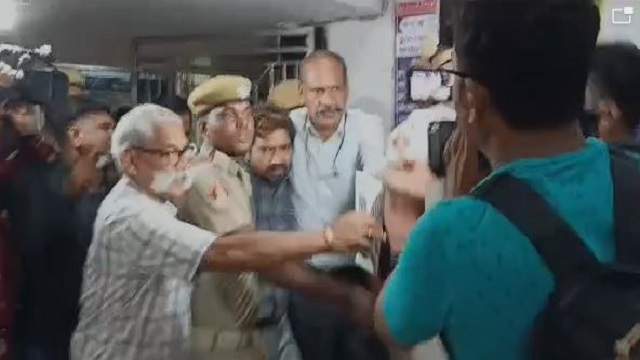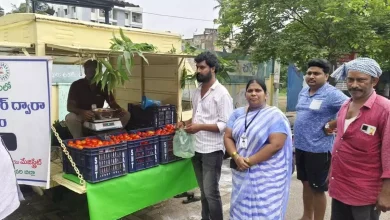Tamil Nadu: Kallakurichi liquor tragedy, the cost of Tamil Nadu government’s inaction

A carpet of crushed flowers on the village road leading to Karunapuram in Kallakurichi is an intense allegory of an institutional homicide. Funeral wails, stifled sobs, and a pungent odour of methyl alcohol mixed with the whiff of burning incense sticks continue to swamp the otherwise sleepy settlement. 56 deaths in five days! Most of the earning members in the village, all daily-wage workers, have fallen prey to the killer brew, rendering scores of kids orphans overnight.
Hooch flows as freely as the Manimuktha River in Kallakurichi. This district is among the most backward in Tamil Nadu. In the evening, the people in Karunapuram, mostly Dalits, keenly await their daily dose of hooch, by squireling away half of their daily earnings. For years, bike-borne youngsters have been frequenting the village to sell the drink in plastic packets for as cheap as `60 for 200 ml. No comparison there with the prices of local liquor offered by the neighbourhood Tasmac outlet. At the beginning of the street, two police stations, including an all-women police station, stand mute spectators to the booming sale of illicit liquor at dusk.
Nobody knows what went wrong last Monday. Was it the mixing ratio that went awry? Did the supply come from the regular sources of Kalvarayan Hills or Velli Hills at the foothills of the former? TNIE reported that irrespective of the rampant sale of hooch in the town, the main distribution route has been left undisturbed by the police and district administration.
While Kallakurichi assembly constituency is held by AIADMK, the nearby constituencies of Sankarapuram and Rishivandiyam (where the hills are located) are held by DMK. Post-the-disaster, the Opposition kicked a storm against the DMK MLAs; the duo has voluntarily offered to quit politics if the allegations are proved right. Many believe that the politics in the state are intrinsically linked to the unholy yet thriving business of liquor, but they dread to think that hooch is only a money-minting extension.
An exclusive TNIE report brought to light that patients had queued up at the Kallakurichi government hospital since Tuesday morning, but the district administration remained in denial till Wednesday evening, hours after the first four deaths were reported. The district collector even claimed that some of the dead were teetotallers. Who was he trying to protect? The government, however, swooped in, ordered the immediate suspension of the police superintendent, and several others, and transferred the collector.
The hooch tragedy is the second one in two successive years. In 2023, around 22 people died in a similar methanol poisoning in Villupuram. While a terrible hooch tragedy in May 2008 left 180 people dead in Tamil Nadu and Karnataka, there was a long, 15-year hiatus, till 2023, for the killer brew to strike again. While CB-CID is yet to make a breakthrough in the probe, the government has outright rejected the call for a CBI investigation. The government’s effrontery seems to stem from the ostrich’s hiding-head-in-sand syndrome.
From a train accident in West Bengal to a series of botched-up examinations by the revered National Testing Agency (NTA) and the concomitant rolling of heads, there was a steady flow of negative news last week. MK Stalin has been quick to call the NEET fiasco a final nail in the coffin of an incompetent and broken system of centralised selection. Meanwhile, a string of pot-bellied politicians negotiating to balance themselves on one leg and predictably crumbling gave us a much-needed reprieve, on the International Yoga Day.
As the state gears up for the byelection in Vikravandi in Villupuram, DMK may face an extra hurdle. No matter who wins it, Kallakurichi will remain an indelible blot on Tamil Nadu’s collective consciousness.





